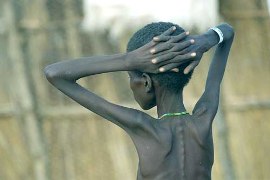The Adventist Development and Relief Agency (ADRA) crisis assessment team arrived in Niger on August 5 to begin their assessment of the food shortage crisis in that country. They will continue to research the situation on the ground as well as contacting other non-governmental organizations (NGOs), potential donors, and other organizations for partnership opportunities until August 19.
Once the assessment is complete, ADRA will begin to allocate private funding and contact interested governmental and corporate partners to assist with additional project funding to help offset the devastating effects of locust infestation and drought.

"ADRA is committed to helping the victims of the current food crisis in Niger," said Mario Ochoa, executive vice president for ADRA International. "We are currently organizing a response in terms of food, potable drinking water and public health activities. We are confident that we will soon begin the implementation stage of our response, and will promptly deliver aid to the areas where it is most desperately needed."
ADRA is also looking into other areas in the region that are also experiencing food shortage issues, such as Mali and Burkina Faso. "We are expecting to organize a significant response," stated Frank Teeuwen, bureau chief for emergency management, ADRA International.
In mid-July, the United Nations reported that some 2.5 million people in around 3,000 villages in Niger were at risk of food shortage. UNICEF estimates that more than 150,000 children under age 5 in Niger are severely malnourished, and another 650,000 moderately malnourished - all together, about one in five. Malnutrition is a factor in 60 percent of deaths of children younger than 5 - and in Niger, more than a quarter of all children never reach their fifth birthday.
The food shortage was caused by a severe drought and locust infestation, leaving behind a harvest too small to adequately feed the people of Niger.
ADRA is present in 125 countries, providing community development and disaster relief without regard to political or religious association, age, or ethnicity.
